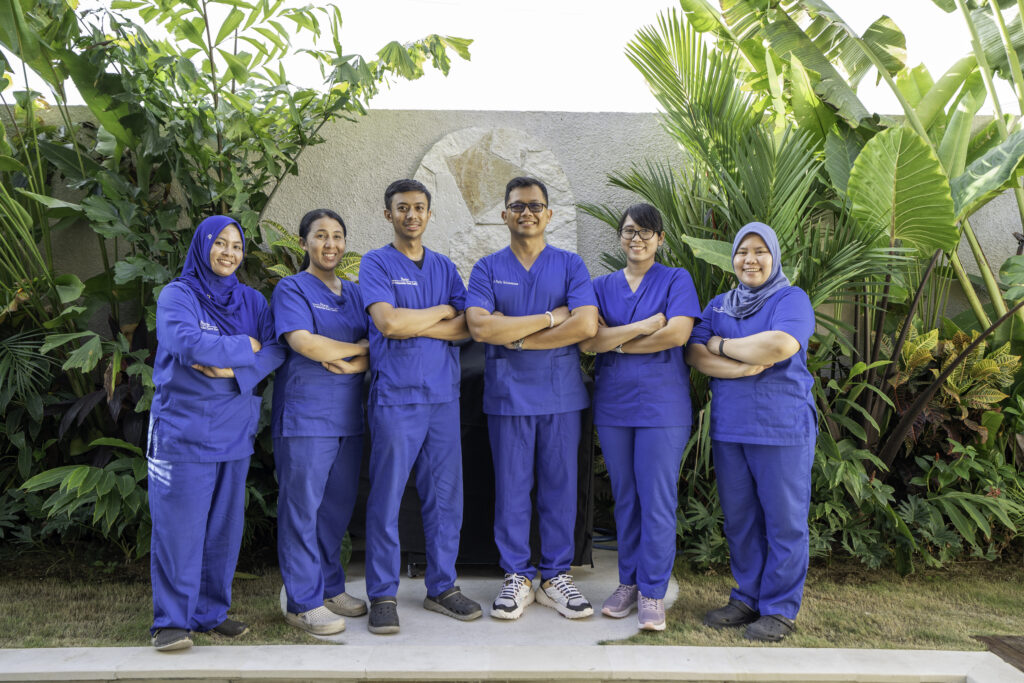
Layanan IV Hangover di Bali: Kapan Cocok dan Kapan Harus Periksa Dulu
Bangun dengan hangover parah di Bali? Matahari Januari 2026 baru saja mengintip di balik rimbunnya pepohonan di villa Anda di
Bali, with its stunning landscapes, vibrant culture, and thrilling adventures, attracts millions of travelers each year. However, amidst the excitement, unexpected injuries can occur, ranging from minor cuts and scrapes to more serious wounds. Proper wound care is crucial to prevent infections, promote healing, and ensure that your Bali experience remains enjoyable.
In this blog post, we’ll explore essential wound care tips, what to do if you get a cut in Bali, and highlight Trishnanda Care Centre’s extensive wound care treatments, conveniently available right at your doorstep.
Bali’s tropical climate, coupled with its diverse terrain and activities, can increase the risk of wounds and infections. High humidity, warm temperatures, and exposure to various bacteria and microorganisms make proper wound care a top priority for travelers. Neglecting wound care can lead to severe consequences, such as:

To minimize the risk of complications and promote optimal healing, follow these essential wound care tips:
Even with the best precautions, accidents can happen. If you get a cut during your Bali trip, follow these steps:
Trishnanda Care Centre offers a wide range of wound care treatments, tailored to your specific needs:

At Trishnanda Care Centre, we understand that seeking medical care while traveling can be stressful. That’s why we offer convenient in-home and in-villa wound care treatments. Our medical team will come directly to your location, whether you’re staying in a hotel, resort, or private villa, to provide the care you need in the comfort of your own space. This service ensures that you can focus on healing and enjoying your time in Bali, without the hassle of traveling to a clinic.
Our team of medical professionals at Trishnanda Care Centre is highly skilled and experienced in wound care management. We stay up-to-date with the latest advancements in wound care techniques and products to provide you with the most effective treatments available. Moreover, we approach every patient with compassion and understanding, recognizing that wounds can be both physically and emotionally challenging. We strive to create a comforting and reassuring environment, supporting you throughout your healing journey.
Proper wound care is essential for travelers in Bali to prevent infections, promote healing, and ensure an enjoyable trip. By following essential wound care tips and knowing what to do if you get a cut, you can minimize the risk of complications. However, when professional medical assistance is needed, Trishnanda Care Centre is here to help. With our extensive wound care treatments, delivered conveniently to your doorstep, you can trust that your wounds will receive the highest quality care from our experienced medical team.
Don’t let a wound ruin your Bali experience. Contact Trishnanda Care Centre for expert wound care treatments, and prioritize your health and well-being while enjoying all that this beautiful island has to offer.
If you have a deep cut, puncture wound, or a wound that won’t stop bleeding after 15 minutes of direct pressure, seek medical attention immediately. Additionally, if you notice signs of infection, such as increased pain, redness, swelling, warmth, or discharge, consult a medical professional promptly.
Yes, Trishnanda Care Centre is equipped to handle a wide range of wounds, from minor cuts and scrapes to more severe injuries. Our medical team has the expertise and resources to provide comprehensive wound care treatments, including professional cleaning, debridement, infection control, and specialized dressings.
At Trishnanda Care Centre, we prioritize prompt and efficient care. Once you contact us for an in-home or in-villa wound care treatment, our medical team will arrive at your location as quickly as possible, typically within a few hours, depending on your location and the time of day.
Coverage for wound care can vary depending on your specific travel insurance policy. It’s essential to review your policy details or contact your insurance provider to determine whether wound care treatments are covered. In some cases, you may need to pay for the treatment upfront and then submit a claim for reimbursement.
To minimize the risk of wounds during your Bali trip, take the following precautions:

Bangun dengan hangover parah di Bali? Matahari Januari 2026 baru saja mengintip di balik rimbunnya pepohonan di villa Anda di

Kapan waktu terbaik untuk melakukan tes NS1? Tes NS1 (Dengue Early Antigen) paling akurat dilakukan dalam 1 hingga 3 hari
Contact Our Doctor Now